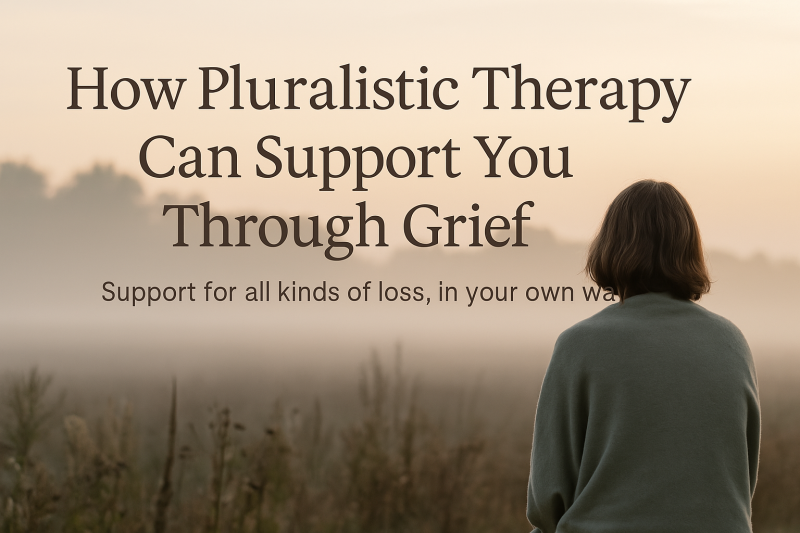
Grief touches us all.
It may arrive after the loss of a loved one, but it can also come with the end of a relationship, the loss of health, a job, a future you had planned, or even a version of yourself that no longer feels reachable.
Whatever shape your grief takes, it’s valid—and you don’t have to face it alone.
At Weir Wellbeing, I offer pluralistic therapy, a flexible and compassionate approach that recognises that grief looks different for everyone. There’s no “right” way to grieve, and there’s certainly no one-size-fits-all approach to healing.
What Is Pluralistic Therapy?
Pluralistic therapy is all about working together to find what works for you.
Rather than following a rigid method, we collaborate to explore the kinds of support that feel most helpful at each stage of your journey. That might include:
- Talking through your emotions when you need to make sense of what’s happened
- Exploring creative or reflective approaches like journaling, letter writing, or memory work
- Grounding techniques for when grief feels overwhelming
- Gentle space-holding, when words feel too difficult to find
Whether you need to talk, be still, or simply have someone beside you in your pain, we’ll go at your pace.
Grief Can Show Up in Many Ways
We often associate grief with bereavement, but there are many different forms of loss that deserve recognition and care. You might be grieving:
- A person who has died, and the life you shared
- A relationship that ended or changed
- A sense of identity or purpose
- A future you hoped for, like becoming a parent, reaching a goal, or recovering from illness
- The loss of health, energy, or independence
- A pet, a home, or even a safe sense of self
Grief can feel like sadness, numbness, anger, guilt, anxiety—or all of these at once. It’s not always linear, and it doesn’t have a timeline.
How Can Therapy Help?
You might feel like you “should be over it by now.” You might be afraid to talk about your grief because it feels too painful—or because others expect you to be “moving on.”
In therapy, there’s no pressure to be okay. You’re allowed to show up exactly as you are.
Together, we can:
- Name your losses and validate your experience
- Make space for your emotions, however they come
- Reconnect with your strengths, even in the midst of pain
- Explore meaning, purpose, and healing at a pace that feels safe
- Adapt your support week by week, depending on what you need most
Grief is not a problem to be fixed. It’s an experience to be held—with care, presence, and compassion.
You’re Not Alone in This
At Weir Wellbeing, I offer a warm, understanding space for people grieving all kinds of loss. As an NCPS-accredited pluralistic therapist, I’ll walk beside you as you navigate this deeply human experience—without judgment, pressure, or expectation.
Ready to Talk?
If you’re living with grief and wondering if therapy might help, I invite you to book a free, gentle discovery call. There’s no commitment—just a space to explore what support might feel like for you.
You don’t have to carry this alone.


Add comment
Comments